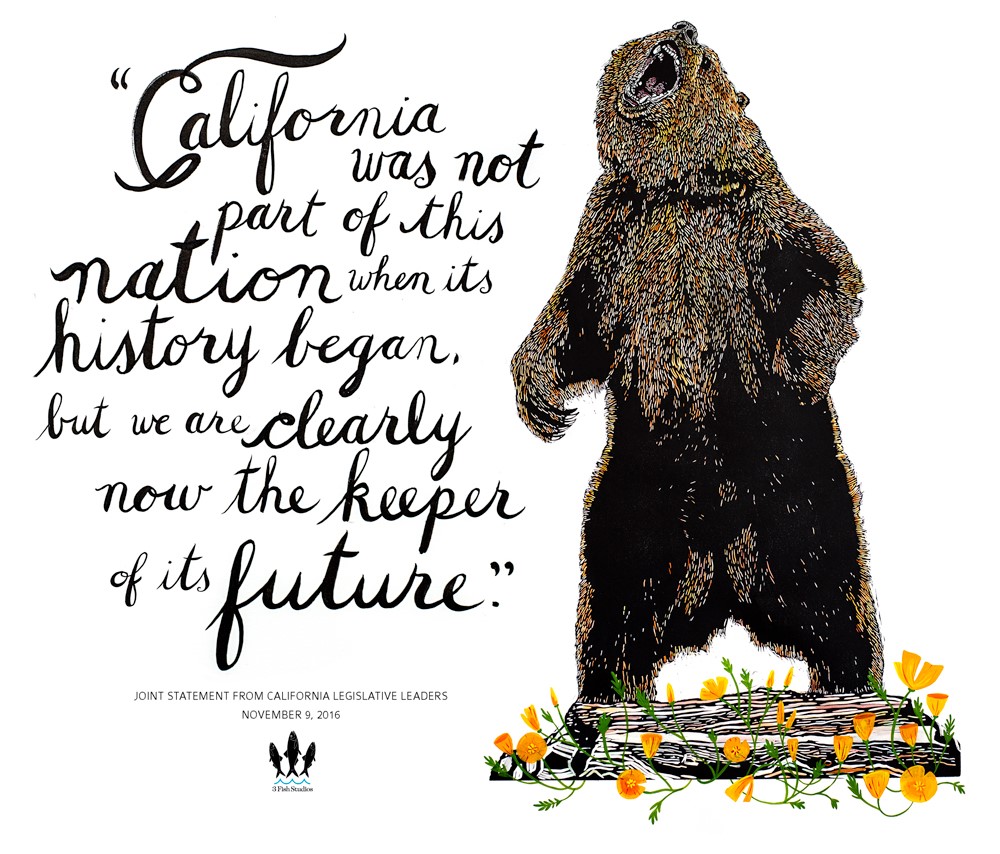
The summer heat is waning, school is back in session, and the California legislative session has come to a close. Over the course of the summer, California Coastkeeper Alliance (CCKA) worked with the Blue Business Council to protect the coast from offshore drilling and plastic pollution, improve water quality and access to adequate water infrastructure, and ensure bills that weaken environmental protections did not reach Governor Brown’s desk.
The 2018 legislative session made a strong statement as to why the nation looks to California as an environmental leader. California’s new laws will become national models and precedent-setting for years to come.
California Stands Strong Against Offshore Drilling.
On September 8th, Governor Brown took a strong stance by signing SB 834 and AB 1775 into law, which backed the bi-partisan resolution passed in the California Legislature earlier this year opposing oil drilling off California’s coast. By blocking federal plans to expand offshore oil drilling, this legislation aligns with Californians’ values across all regions, age, and income levels, as three in four Californians view ocean and beaches as very important to state’s future economy and quality of life. Governor Brown’s swift action in signing these bills ahead of the Global Climate Action Summit sent a clear and simple message to the Trump Administration: “Not here, not now. We will not let the federal government pillage public lands and destroy our treasured coast.”
California Invests in Wetlands as a Natural Defense to Rising Sea Levels.
The California Legislature approved a $6 million allocation to the State Coastal Conservancy to create a new beneficial reuse program for wetland restoration to protect critical habitat and increase resilience of the California coastline against rising sea levels. By partnering with the U.S. Army Corps of Engineers, California is investing in nutrient-rich dredged sediment to shore up the state’s wetlands for pennies on the dollar. This investment will result in restored wetlands that will store carbon emissions, allow species to shift with naturally changing habitats, and provide a natural buffer to protect homes, roads, and other coastal infrastructure from flooding caused by sea level rise.
California Curbs Water Waste and Invests in Efficiency.
California took a step this session toward increased water resilience with legislation that sets statewide standards for water efficiency. SB 606 and AB 1668, passed and signed by Governor Brown, establish guidelines for efficient water use and a framework for the implementation and oversight of the new standards. The two bills establish an indoor, per person water use goal of 55 gallons per day until 2025 and 50 gallons beginning in 2030, and require both urban and agricultural water suppliers to prepare for drought by setting annual water budgets. Water use data in the coming years will reveal our state’s true efficiency potential and may justify strengthening these standards, but this legislation creates a foundation for wiser use of all water. In addition to SB 606 and AB 1668, Governor Brown signed SB 966 into law, allowing local communities to create on-site water recycling programs to lower public and private water consumption throughout the state. Together with strengthened standards and increased opportunity for water recycling, California can increase its water use efficiency and be better poised to face future drought.
California Says No to Plastic Pollution.
The Legislature doubled down on the state’s commitment to reducing plastic pollution and waste with a package of bills to stop the flow of plastic into our landfills and waterways. Microplastic pollution is making its way from synthetic materials into the seafood and water that we consume, and two new laws address the presence of this pollutant in our drinking water and in our marine environment: SB 1422 requires the testing and public reporting of the presence of microplastics in drinking water, and SB 1263 directs the Ocean Protection Council to develop, adopt, and implement a Statewide Microplastics Strategy to investigate and reduce microplastic pollution. Meanwhile, California seeks to reduce inland sources of plastic pollution by only allowing reusable, recyclable, or compostable food service packaging be sold at California state parks and beaches with SB 1335. And importantly, AB 1884 makes single-use plastic straws only available upon request when dining out. Each bill offers a modest proposal to decrease plastic pollution in California, but together these new laws provide California an opportunity to make a significant impact.
All Californians Deserve Reliable Water Infrastructure.
Two bills passed the California Legislature and received Governor Brown’s signature to protect public health and improve drinking water supplies for the thousands of California families that suffer from inadequate water services. AB 2501 expands the State Water Resource Control Board’s authority to consolidate systems that serve disadvantaged communities and consistently fail to provide safe, affordable drinking water with nearby municipalities. Meanwhile, SB 1215 authorizes Regional Water Quality Control Boards to consolidate sewer services to reach disadvantaged communities with inadequate onsite sewage treatment systems. Wastewater treatment and drinking water quality are inextricably linked, and these bills will critically improve drinking water supply and infrastructure to ensure all communities in California have access to safe, affordable drinking water and water treatment systems.
With these bills and with our engagement throughout the state, CCKA is committed to ensuring swimmable, drinkable, and fishable waters for all. Now, more than ever, California must serve as a national leader in protecting the health of our natural systems and communities.

Policy Manager Kaitlyn Kalua represents CCKA and its member Waterkeepers in state regulatory and legislative forums to advance statewide water policy.



